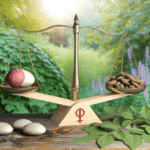Is it normal to mourn the loss of my fertility?
Menopause means the end of the ability to conceive a genetic child. And for many women this can feel like grief, whether has, whether a woman has completed her family building journey or not. This loss can be especially painful for a woman with a history of infertility.

My friend Chia Chia compares menopause and losing the function of the ovaries to losing her two pinky fingers. One day you wake up and all of a sudden they’re not there. And this is something just because we don’t see it’s inside our body, the ovaries are inside, that we don’t usually acknowledge or think about cause it’s not prevalent.
Whereas your pinkies would be right there where you use them every day. And it’s the same with your ovaries. You use them every day and they were a part of your life, your whole reproductive life, and all of a sudden they’re useless.
Even if a woman’s fertility journey is in the distant past or they’ve completed their family, there’s a feeling of loss and it can be overwhelming as this part of a woman is so connected to her evolutionary purpose and it’s now gone forever. And the physiological changes that come with hormone decline in menopause are real and taxing on your body, on your relationship, on your productivity.
So, what can you do if menopause has triggered your emotions related to the trauma of infertility from your past, or it’s taken its toll on you with its hellish symptom?
First with infertility. Infertility has often been compared to trauma and recovery of this trauma compared to PTSD or post-traumatic stress disorder. So for this, you can see a therapist, or join a support group. There are a lot of acceptance practices like meditation and breathing. You just need to find a guide. I’ve even made some videos on this that you can watch.
Movement is also extremely helpful to get the release of stuck energy and the stuck feelings that are there or that are buried there. And so to rehatch and get those to move out is very healing.

With menopause and the symptoms, I can really attest to the far-reaching wrath of these symptoms. Educate yourself. Actually, that’s how I started this journey and talking so much about it. There’s so much in misinformation out there, and I just had to do my own research, and dig in.
A functional medical practitioner is another important specialist you could talk to or see, which would do the adequate tests to see what your hormone levels are and recommend a lot of important changes to diet, lifestyle, making your health a priority.
Lastly, talk to your partner about the physical, mental, emotional, all these physiological changes that are inevitable and that are not your fault. They just happen with the decline in hormones. So I hope you found this video helpful. Please share with your friends, like, and subscribe to our channel.








